- Solutions
- Real World Evidence
- Solid Cancer Observatory
Join our Solid Cancer Observatory
Using real-world data, the Solid Cancer Observatory maps treatment pathways and outcomes across solid cancers with tailored endpoints for each tumor type in prostate, lung, colorectal and breast to uncover opportunities to improve care, reduce variation, and better align treatments with patient needs.
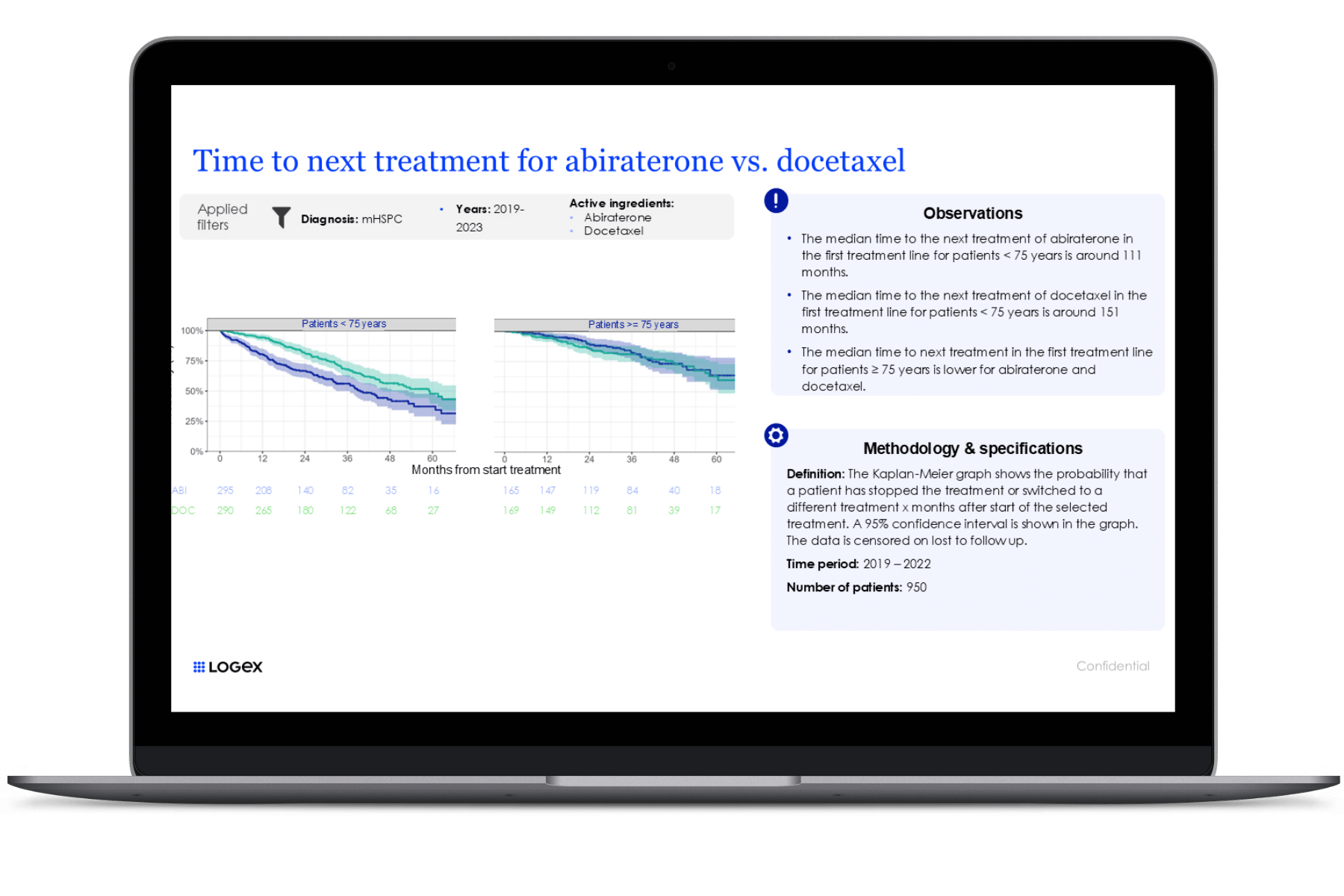
Gain Unique International Pan-European Insights
Improving Oncology Care and Operational Insight
The Solid Cancer Observatory offers hospitals a dual lens on cancer care, combining insights into both medication use and hospital-based interventions such as surgeries and radiotherapy. This integrated view supports more informed clinical decision-making and allows hospitals to better understand the resource implications of different treatment strategies. By retrospectively analysing real-world treatment pathways — including drug combinations, outcomes, and variation in surgical volumes — hospitals can benchmark their performance, evaluate care efficiency, and explore opportunities to optimise both outcomes and resource allocation. With a focus on major tumor types like prostate cancer, the Observatory also provides a platform for research and publication, helping hospitals contribute to the broader oncology knowledge base.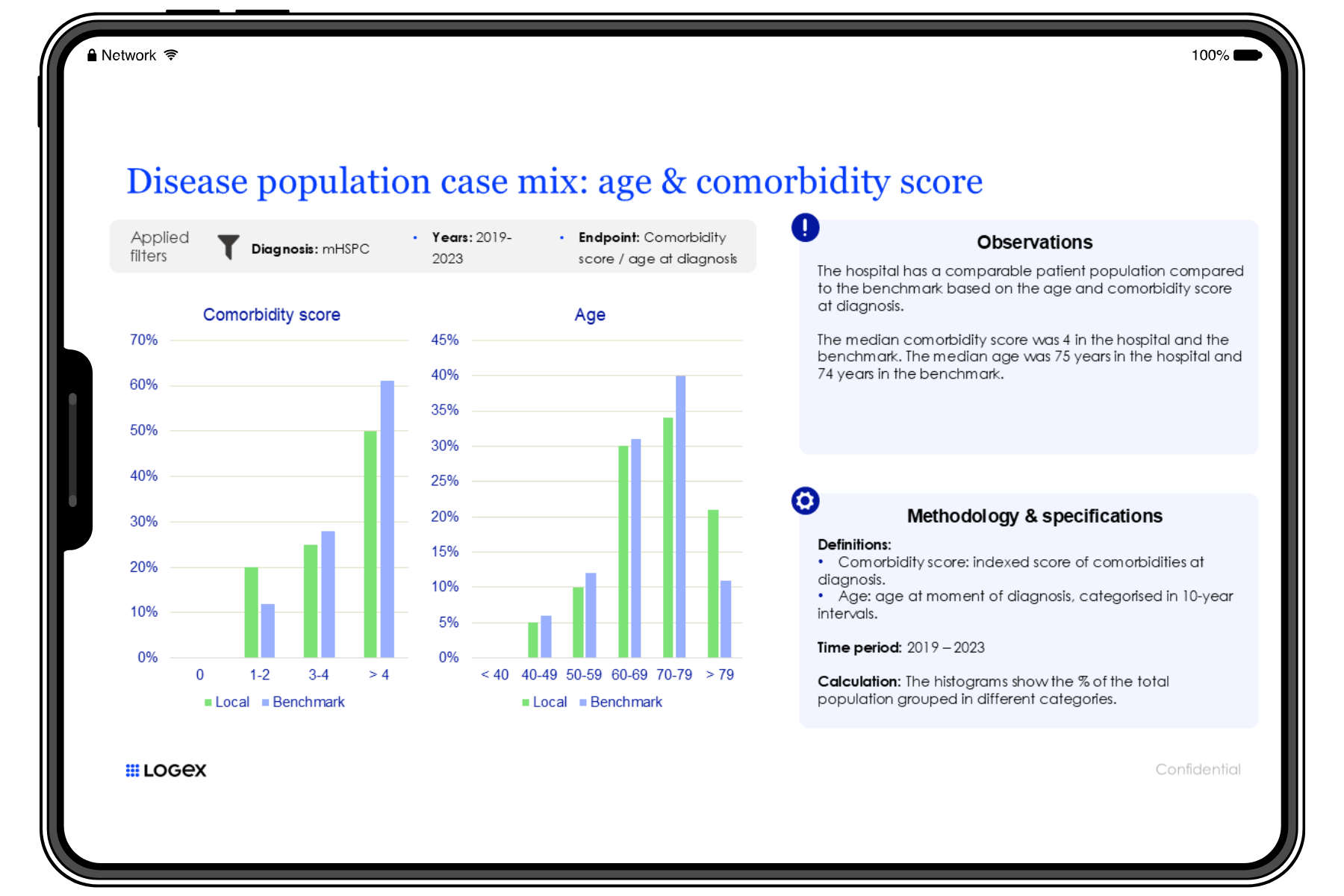
Unlocking Deeper Real-World Evidence
The Solid Cancer Observatory provides a dynamic, longitudinal view of real-world oncology care. It enables detailed insights into how therapies are used in practice — including treatment line, sequencing, and combination patterns — as well as the adoption of biomarker testing and its role in clinical decision-making. Sponsors gain visibility into both the uptake and real-world performance of drugs across hospitals and patient populations. Unlike static datasets, the Observatory continuously evolves, allowing for retrospective analyses and ongoing exploration of treatment pathways and outcomes over time. All insights are fully anonymised and aggregated, supporting high-quality evidence generation while safeguarding patient privacy.
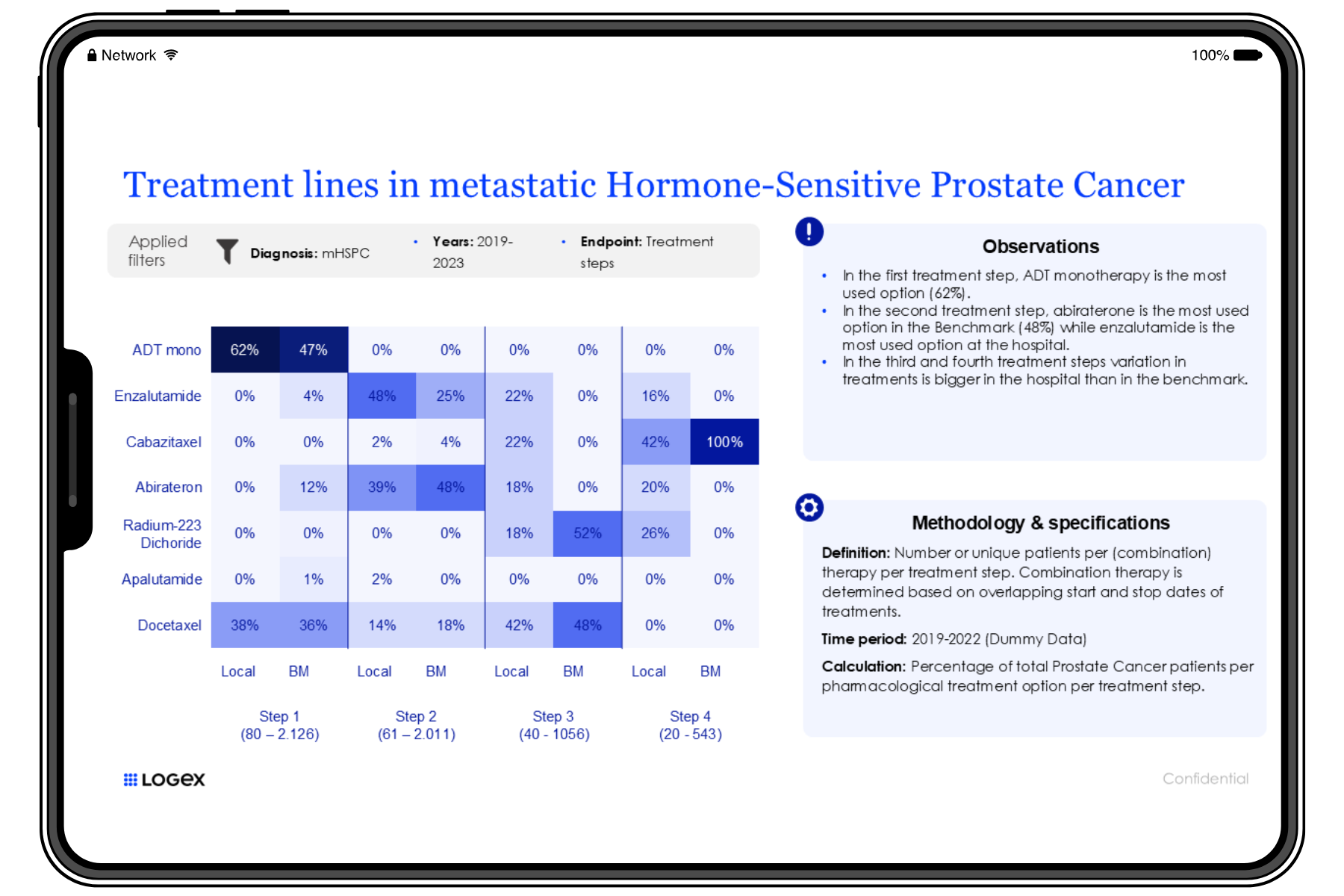
Simple, Free Participation with Immediate Benefits
Hospitals can join the Solid Cancer Observatory at no cost and easily integrate into their existing data systems. Participation requires minimal effort, allowing hospitals to contribute valuable real-world data while gaining direct access to actionable insights into their own cancer care pathways. By participating, hospitals can evaluate their treatment practices, optimise resource use, and compare outcomes against broader benchmarks. Every participating hospital not only benefits from these insights but also contributes to closing critical knowledge gaps in oncology care, helping to shape the future of cancer treatment and healthcare delivery. -1.jpeg?width=1000&height=668&name=AdobeStock_315674262%20(2)-1.jpeg)
What makes our Observatory approach unique?

Data granularity
The level of detail LOGEX has access to is unique, allowing exceptional visibility into patient pathways. E.g.:
- Patient pathway mapping
- Lines of treatment
- Combinations of drugs and indication split
- Filter on specific patient groups

Data access & recency

Longitudinal insights

Scalability
The observatory setup allows for quick expansion into related disease areas under the same contracts.
With our extensive network of hospitals across Europe, expanding into other countries is highly feasible.

Experience
LOGEX has over 10 years of experience working with 700+ healthcare providers across the EU.
We are experts in extracting, delivering, validating and analysing healthcare datasets in close collaboration with HCPs.

Security by design
NEN7510 and ISO27001 certified, full compliance with GDPR.
FG and security officers, authorisation levels, two-factor authentication, informed / explicit consent.
Frequently Asked Questions
What is the legal basis for processing data in the Observatories?
The legal basis for processing data in our projects is provided by GDPR article 9.2(h), which covers projects designed to improve "the management of health or social care systems and services."
Who is responsible for data management, and how is it structured?
The hospital is the data controller, while LOGEX acts as the data processor, ensuring data is handled according to the legal and ethical guidelines.
Are there any specific requirements or ethical approvals needed for the Observatories?
Ethical approval might be necessary in specific cases and is dependent on local guidance and regulations. The focus of the observatory is to improve healthcare and outcomes for participating hospitals, which means ethical approval is not required in certain countries or specific situations.
How is hospital data handled and are there any restrictions on sharing it?
Hospitals remain the owners of their data at all times. Only anonymous population data may be shared with third parties, and LOGEX strictly follows local regulations regarding cross-border data transfers.
Get more out of our Healthcare Intelligence
Go beyond Real-World Data with Patient Engagement and Financial Analytics.

Financial Analytics
Controlling costs and optimising operations through data-driven decision-making.
Secure, compliant and trusted.
Healthcare organisations worldwide trust LOGEX.
How we helped hospitals and Janssen to personalise the treatment pathways of prostate cancer patients through the TripleAiM1 project
Actionable insights into innovative medicines and their costs
Report: "On the Horizon".
March 2024 edition.
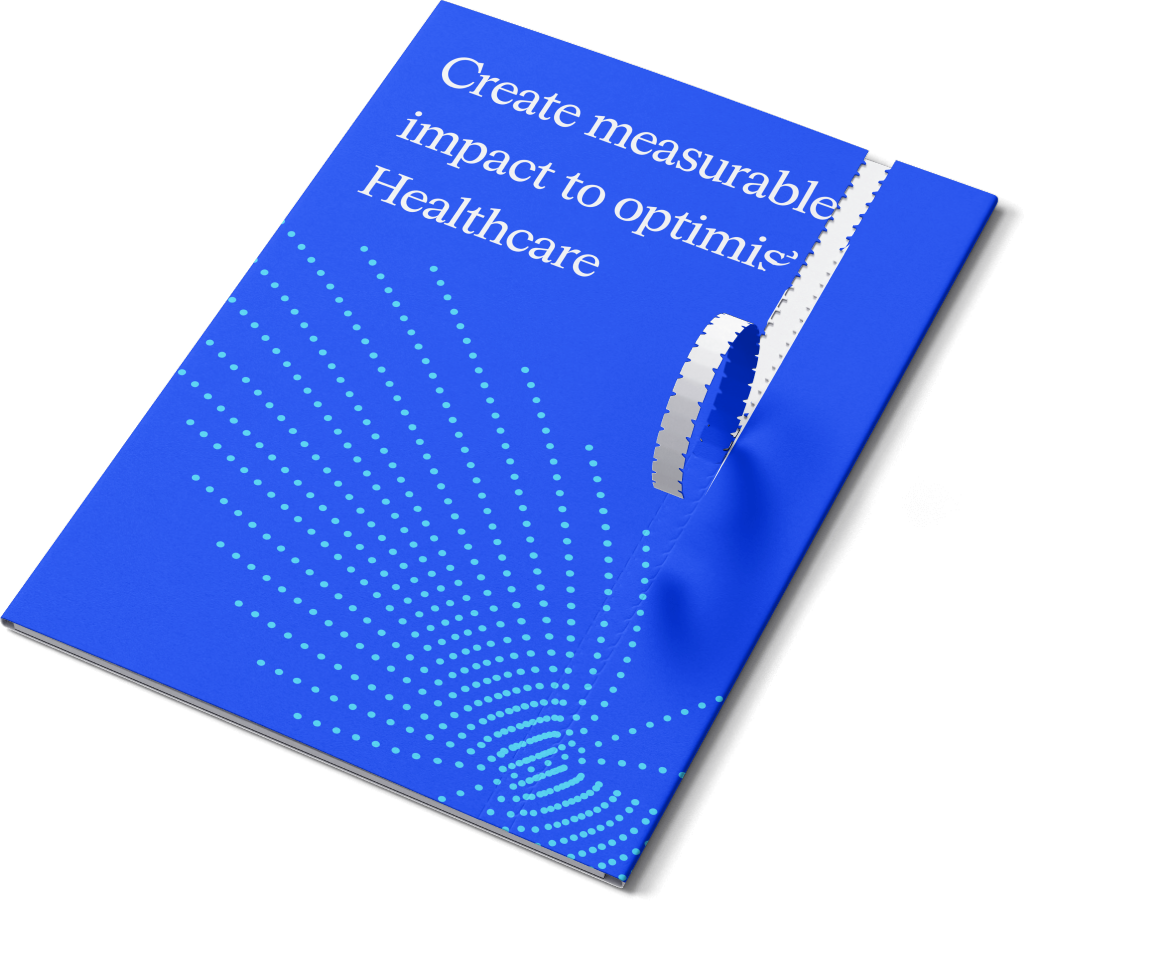
Learn how to leverage data
to make better decisions.
Read our latest publications about how we support data-driven decision-making.
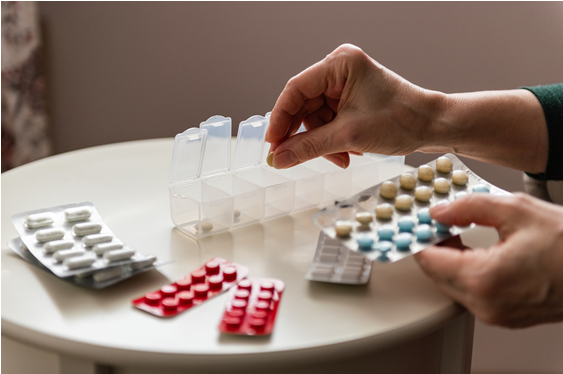
Solidifying Oncology Drug Effectiveness After Approval with Real-World Evidence

A Data-Driven Analysis of Care Pathways for Oncological Patients with Bone Metastases at HagaZiekenhuis
-1.jpg?width=1732&height=1155&name=Stocksy_txp3c7f9c9dMmT300_Medium_2944384-edit%20(1)-1.jpg)
How can RWE be used to solve unwarranted variation in drug uptake and clinical guidelines?
Get clarity and control to make better decisions.
Do you have any questions about harnessing data-driven insights for better financial analytics or seek advice? Allow our experts, such as Sarah, to lead the way.
They will reply within 48 hours on business days.


